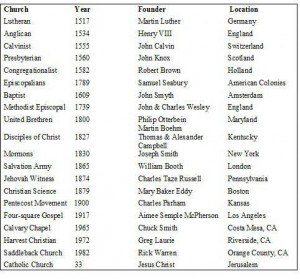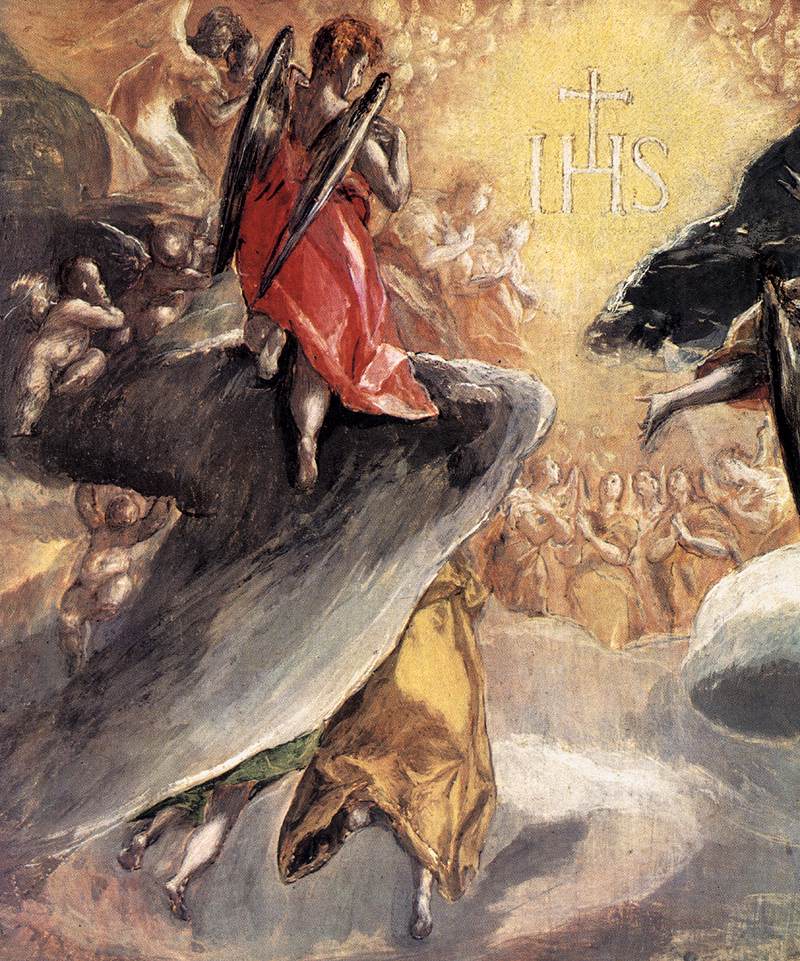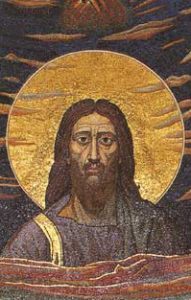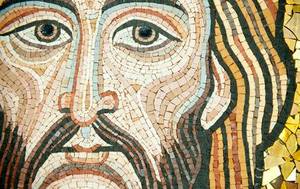 I saw a bumper sticker several years ago that read: “Preaching Jesus Christ since 33 A.D.” One of the Orthodox Churches published it as a way of saying that truth, beauty, goodness and unity are given by Jesus Christ; Christ and the church is not a system of beliefs or policies created at-will. Read carefully the image here.
I saw a bumper sticker several years ago that read: “Preaching Jesus Christ since 33 A.D.” One of the Orthodox Churches published it as a way of saying that truth, beauty, goodness and unity are given by Jesus Christ; Christ and the church is not a system of beliefs or policies created at-will. Read carefully the image here.
There is always the perennial question about following Christ in the Catholic Church: Why does it matter if you leave the Catholic Church? Does it matter if I stay in the Church?
You can have several approaches to the question, but here are the essentials:
1. the truth claims in God as One and Triune; that God is Being itself; that all beauty and unity are defining characteristics of Father, Son and Holy Spirit;
2. Grace –the inner life of the Triune God, not sin, is given to the Catholic Church because its founder, Jesus Christ;
3. Jesus gave his apostles the grace of the sacred Priesthood, and the other sacraments; the Church gave us the Holy Bible, our sacred Scripture revealed by God;
4. Saint Peter was given the pastoral authority and power to preach, teach, and lead the Church to the fullness of the truth, Christ Himself (Matthew 16; 17-19);
5. the power to forgive sins was given by Christ to Peter and Peter to those anointed to share in his ministry down through the ages (apostolic succession, it is called); we follow the Master in the unity and sacramentality of the Church.
Hence, he Catholic Church, was founded by Jesus and she contains the fullness of truth, as promised by Jesus Himself.
The Church is not merely one among many denominations. The Holy Spirit does not divide the truth; there are not personal versions of the truth that claim to set man and woman free. We believe in the objectivity of truth and this truth is not a thing, but a person. There is one Church only: the Catholic Church. In the USA we encounter many groups who claim to be a “church” and to have the fullness of truth. Yet, the question needs to be raised: what do we think of the Protestant groups? The teaching of the Catholic states that each of the groups have some aspect of truth but they do not have the fullness of the truth as revealed by Scripture because they lack valid priesthood and therefore valid sacraments (very few have 7 sacraments that are believed to be instituted by Christ to give grace). As a caveat, we teach and hold that the Orthodox Church has the fullness of truth and sacraments but it lacks true unity with the Body of Christ on earth. One day we will share the Holy Eucharist with the Orthodox.
Catholics are not perfect and they are certainly not holier than other Christians. We are a church of sinners seeking redemption in Christ Jesus. Our belief is that the Catholic Church is both human and divine. And because she shares in Christ’s divinity, it is holy and she will last forever (“I am with you always, to the close of the age.” Matthew 28:19-20). The human side of the church explains the sins, the scandals, unfaithfulness of the people. Logically, though, you cannot claim that the presence of scandals and singer prove that the Catholic Church is false. It proves we need a Savior.
Considering the Christian ecclesial communities and churches, historically we can say that ONLY the Catholic Church existed since the time of Jesus. All other Christian churches have broken from the Catholic Church. Examples: Orthodoxy broke away from unity with the pope in 1054; various mainline Protestant communities were established during the Reformation (1517); and then many of the other smaller groups are breakaways from the Protestant communion.
It is recorded that Church history has lead many unbelievers to search and know the truth. History will demonstrate what the early Church believed about the Eucharist (the Real Presence of Christ in the Eucharist); how and why the early Christians prayed for the dead; what the Lord gave to the Apostles in terms of sacraments; Peter was clearly chosen by the Lord as the leader of His Church; that Mary was loved and honored by the early Christians and understood as the All-holy Mother of God.
 At this seventh day of Christmas, I am thinking of who it is we preach these days. A piece from Saint Cyril of Jerusalem is helpful to contextualize the question especially we are day before the Octave Day of Christmas: the giving of the Holy Name, the only one that truly saves us. The saint preached:
At this seventh day of Christmas, I am thinking of who it is we preach these days. A piece from Saint Cyril of Jerusalem is helpful to contextualize the question especially we are day before the Octave Day of Christmas: the giving of the Holy Name, the only one that truly saves us. The saint preached:


